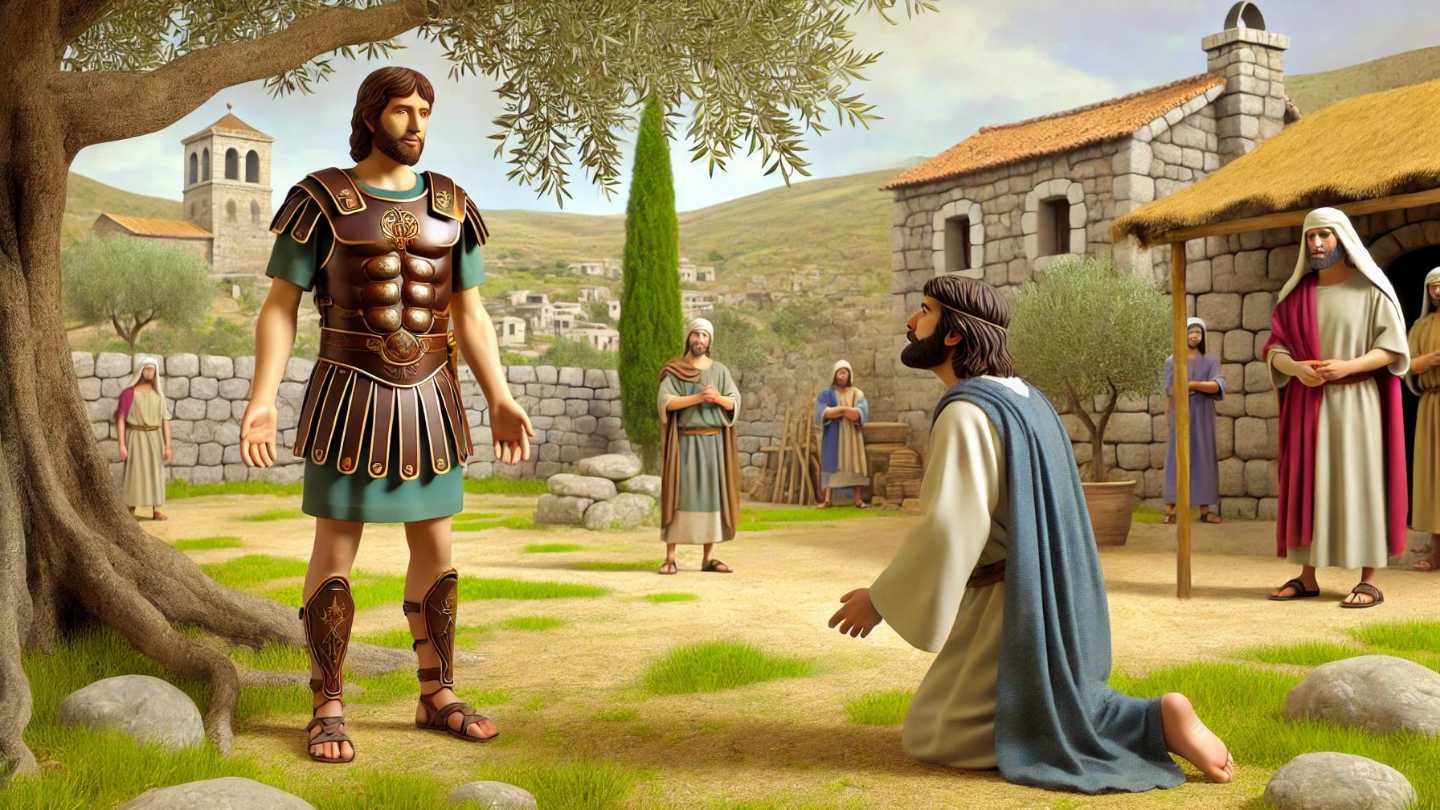Have you ever come across a story in the Bible that just sticks with you? You know, one of those stories that isn’t just another event or miracle, but something that makes you stop and think about your own life, your own faith? For me, the story of the centurion and his faith found in Matthew 8:5-13 is one of those stories. It’s not just about a miracle; it’s about understanding who Jesus is and what it means to trust Him completely, without reservation, without doubt.
Let’s set the scene. Imagine a Roman centurion, a man of authority, power, and status. He’s not your average guy. He commands soldiers, gives orders, and expects them to be followed without question. Yet, this man, who’s used to being in charge, finds himself in a situation where his power means nothing. His beloved servant is sick, near death, and all his influence and resources can’t save him. It’s here that the centurion shows us something truly remarkable—faith that makes even Jesus marvel.
A Humble Approach
What strikes me first is the centurion’s humility. Here’s a man who could have easily sent for Jesus with an air of entitlement. After all, he’s a Roman officer, part of the occupying force in Israel. But instead of throwing his weight around, he does something unexpected—he sends Jewish elders to ask Jesus for help. And not just any elders, but those who speak highly of him, suggesting that this centurion is not only respected but also genuinely kind and caring toward the Jewish people. How often do we, when in need, approach God with the same humility? Do we recognize our own unworthiness, or do we sometimes feel like we’re owed something because of who we are or what we’ve done?
The centurion didn’t see himself as deserving of Jesus’ help. He didn’t even feel worthy to have Jesus come to his house. Think about that for a moment. This man, who had every reason to feel important, didn’t let his status get in the way of recognizing the greatness of Jesus. He knew his place, and he knew that in the presence of Jesus, his power, his authority, were nothing.
Understanding Authority
And this is where the story gets even more profound. The centurion understood something about authority that most people didn’t. He knew that just as he could command his soldiers and they would obey, Jesus could command illness, and it would obey. He didn’t need Jesus to physically be there; he believed that a mere word from Jesus was enough. This wasn’t just faith—it was faith with deep understanding. The centurion recognized that Jesus’ authority was far greater than his own, that Jesus had the power to command the natural and supernatural alike.
How often do we limit Jesus in our minds? How often do we think, “If only Jesus were here, if only I could see Him or touch Him, then my prayers would be answered”? The centurion didn’t need that. He believed in Jesus’ authority so completely that he didn’t need physical evidence. He didn’t need Jesus to come to his house; he just needed Him to say the word.
A Faith That Amazed Jesus
It’s not often that we read about Jesus being amazed. In fact, the Gospels don’t mention it much at all. But here, Jesus is amazed at the centurion’s faith. Imagine that—Jesus, who knows all things, who sees into the hearts of men, is astonished by this Gentile’s faith. It’s a powerful reminder that faith isn’t about religious background, ethnicity, or status. It’s about the heart.
Jesus praises the centurion, saying that He hasn’t found such great faith even in Israel. That’s a big statement. Jesus is essentially saying that this Roman, this outsider, has more faith than the people who were supposed to be closest to God. It’s a reminder that faith can be found in the most unexpected places and people. Sometimes, those we least expect to have faith are the ones who understand it the most deeply.
What Does This Mean for Us?
So, what can we learn from the centurion’s faith? I think the biggest takeaway is that faith is about trust and understanding. It’s about recognizing who Jesus is and trusting in His authority completely. The centurion didn’t demand a sign; he didn’t need Jesus to be physically present. He simply trusted that Jesus could do what He said He could do.
But it’s also about humility. The centurion didn’t come to Jesus with demands or expectations. He came with a humble request, fully aware of his own unworthiness. It’s a lesson in how we should approach God—not with a sense of entitlement, but with a heart that recognizes His greatness and our need for Him.
And then there’s the idea of acting on our faith. The centurion didn’t just believe in Jesus’ power; he acted on that belief. He sent for Jesus, even though he didn’t feel worthy, because he knew that Jesus was his only hope. Faith isn’t passive. It’s not just something we hold in our hearts; it’s something that moves us to action, something that drives us to seek Jesus out, to trust Him in the situations where we feel most powerless.
A Challenge for Today
As we reflect on the faith of the centurion, we should ask ourselves: Do we have that kind of faith? Do we trust Jesus’ authority in our lives, even when we can’t see Him at work? Do we approach Him with humility, recognizing our need for His grace? And do we let our faith move us to action, seeking Him out in our times of need, trusting that He can and will act?
The centurion’s faith wasn’t complicated. It was simple, direct, and powerful. It was faith that understood who Jesus was and trusted Him completely. And it was faith that left a lasting impression—not just on those who witnessed the miracle, but on Jesus Himself.
Let’s strive for that kind of faith. A faith that doesn’t need to see to believe. A faith that approaches Jesus with humility and trust. A faith that acts, even when the outcome is uncertain. Because it’s that kind of faith that truly amazes, not just those around us, but Jesus Himself.

Author

Alona Smith is a devoted follower of Jesus Christ who believes that life’s true purpose is found in knowing Him and making Him known. She is passionate about sharing God’s Word with clarity and compassion, helping others see the beauty of the gospel of grace revealed through the Apostle Paul.
Grounded in Scripture and led by the Spirit, Alona seeks to live out her faith in practical ways—showing kindness, extending forgiveness, and walking in love. Whether serving in her local church, encouraging a friend in need, or simply living as a light in her community, she strives to reflect Christ in both word and deed.

